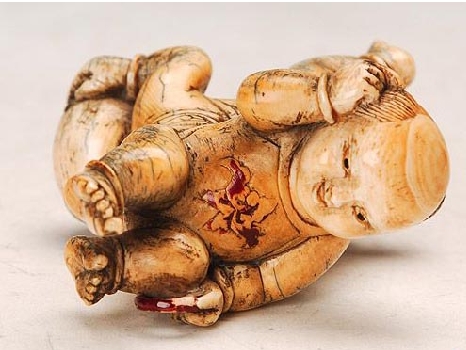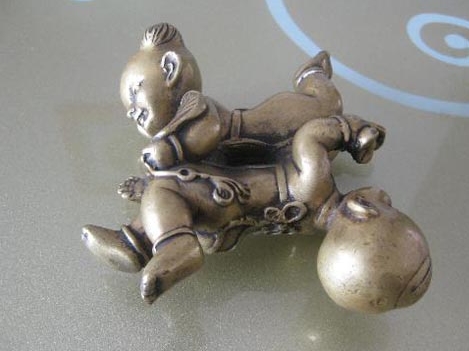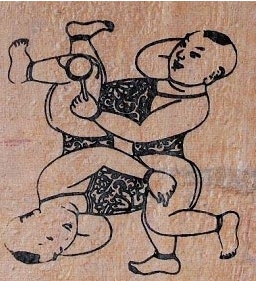

The four-happiness baby figurine (Sixi Wawa) is a kind of folk doll made according to the conjoined shape of babies. People either display it at home or hang it on the body, in the hope of bringing happiness and fortune.

The four-happiness baby figurine features a pair of cute and adorable babies in their bellyband, with one hand holding a palm-leaf fan and the other gripping a gold ingot, displaying some kind of naughty and frolic looks. Through some ingenious combination, the two babies turn into four, which is the unique feature of the four-happiness baby figurine. As recorded by the historical book during Emperor Qianlong's reign in the Qing Dynasty, the four-happiness baby figurine was enshrined as "God of Happiness" in the wedding customs, enjoying high popularity among the common people.
A popular saying goes that the four-happiness baby figurine was designed by Xie Jin, a talented scholar from Jiangxi Province during the early Ming Dynasty. Folklore has it that once the emperor had all the imperial scholars make handicrafts themselves, and explained the connotations of what they made. Xie Jin constructed the design of the four-happiness baby figurine with a sudden inspiration. When the emperor asked him what the "four happinesses" referred to, Xie Jin blurted out, "The four great happy moments in life are to enjoy one's wedding night, to succeed in an imperial exam, to have a welcome rain after a long drought, and to come across an old friend in a distant land. Hence the handicraft is named 'four-happiness baby figurine'.





